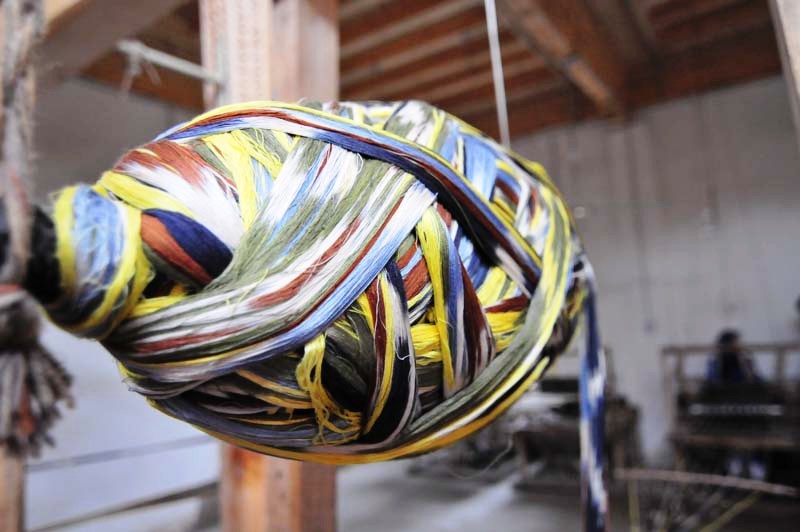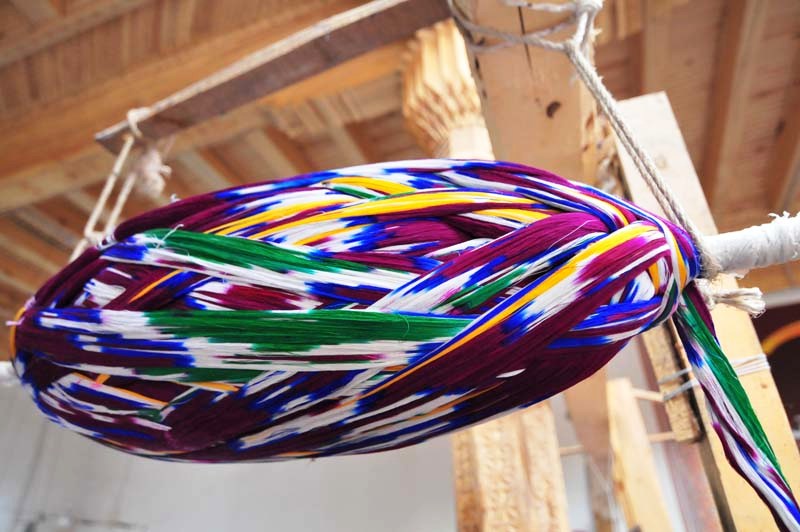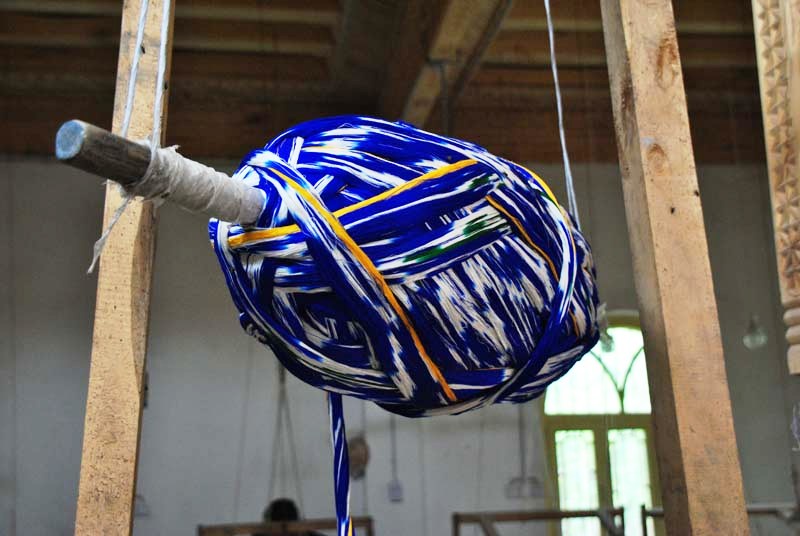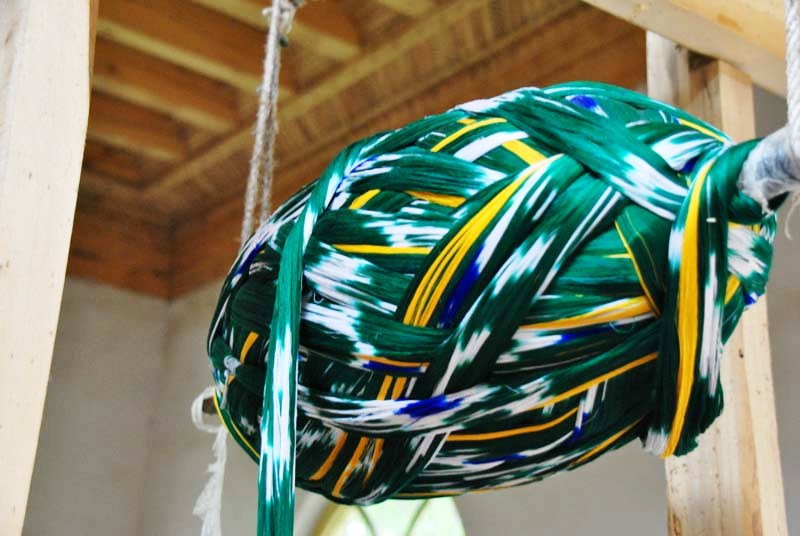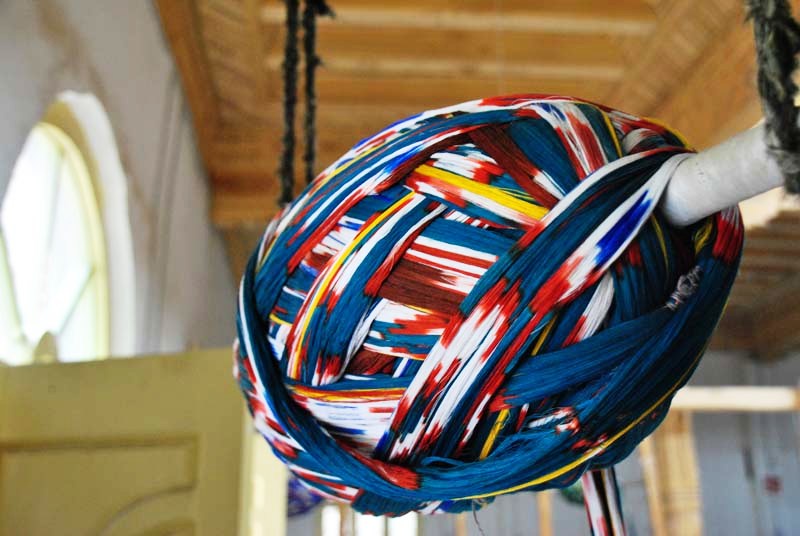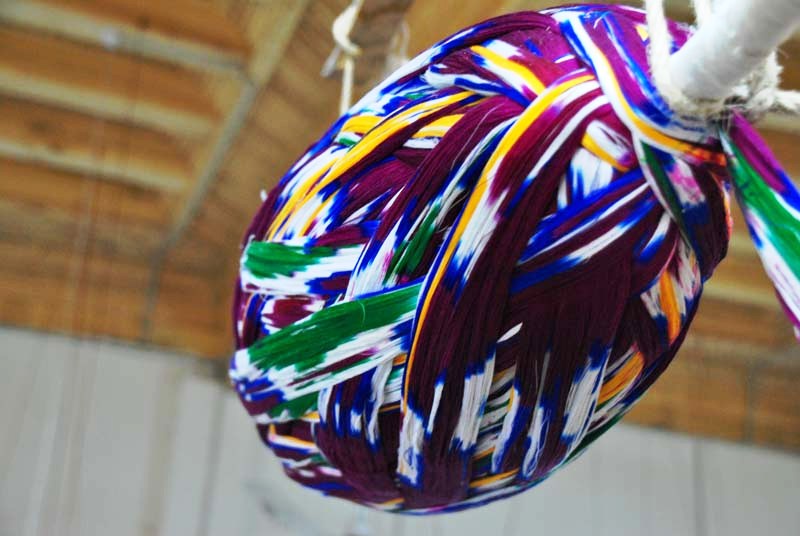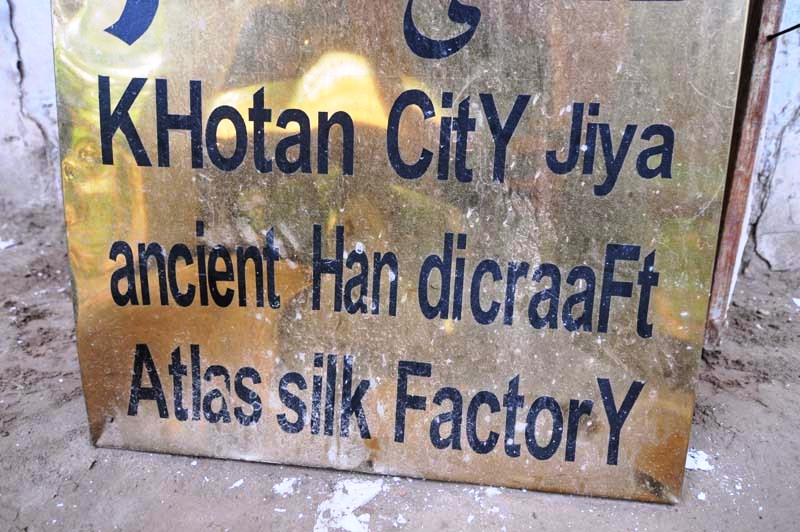
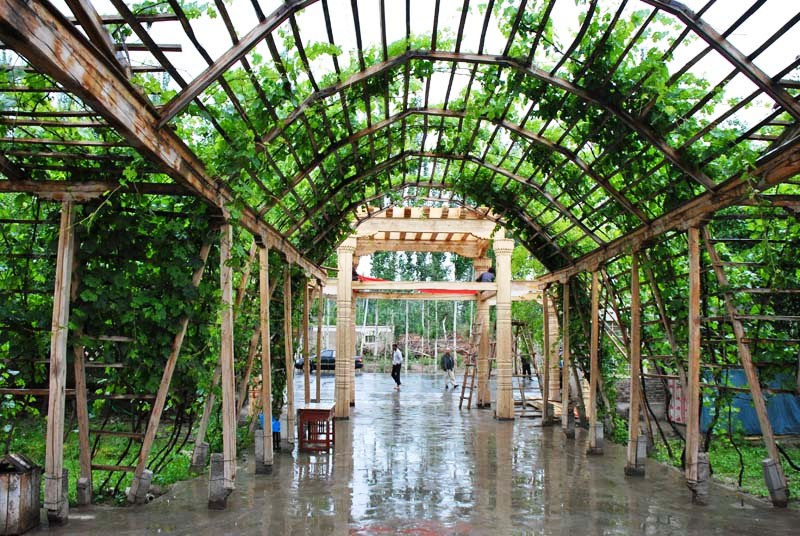
Hotan is THE city for silk. Only here the real silk is produced in the traditional way and all the other silk in China is fake. And for sure, the silk was invented in Hotan, didn't you know? Ok, let's have a look into the silk production here: First: boil the silk larva, second: if needed dye it.....
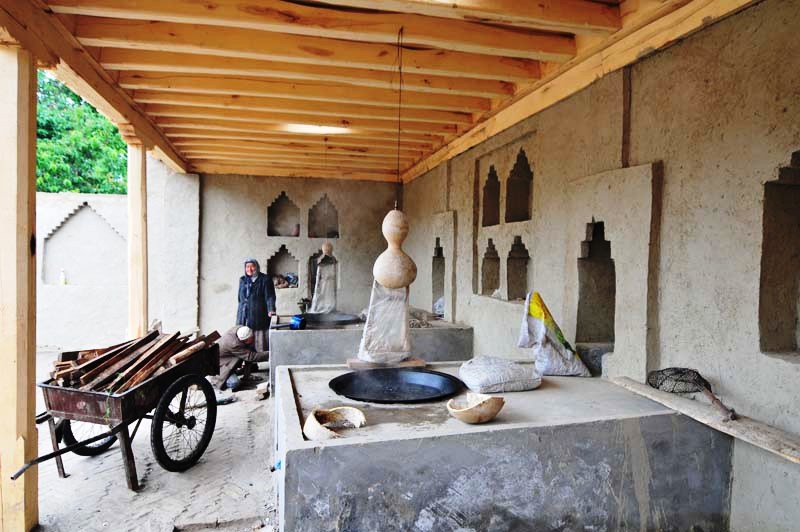
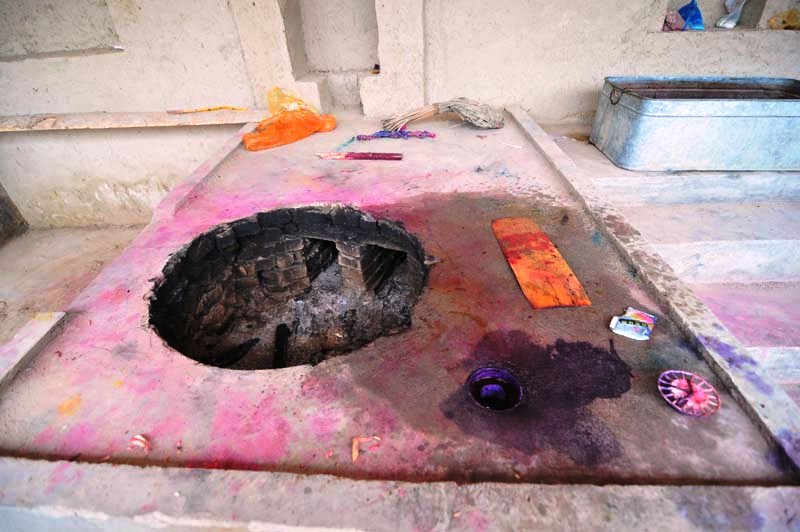
...... third: spin it, forth: collect it to loom patterns and (if needed) dye it again, fifth: clamp it into the loom, six: put a big stone as a counter weight to it......
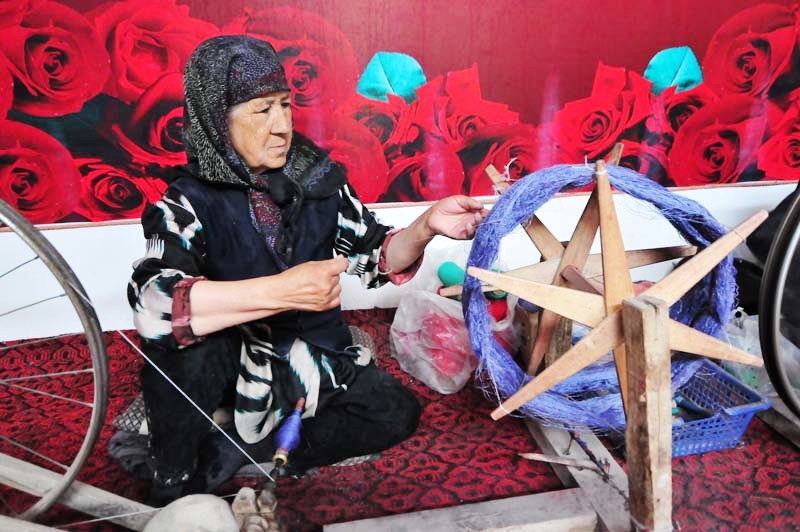
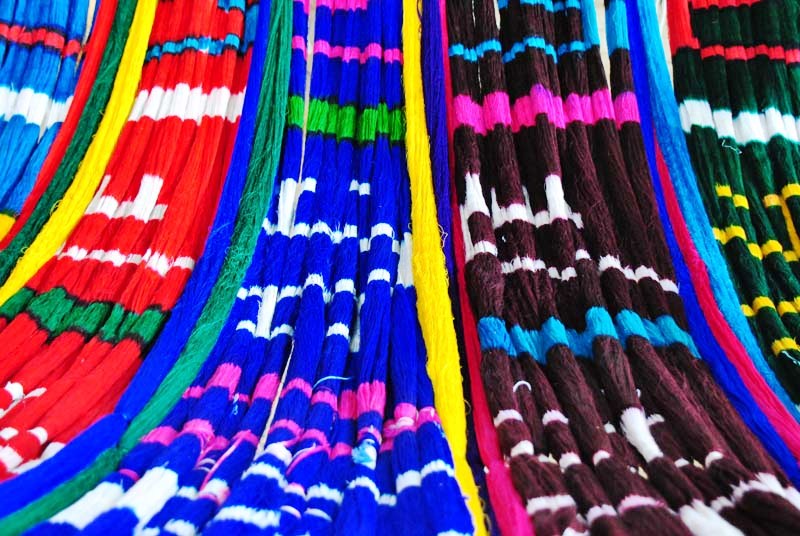
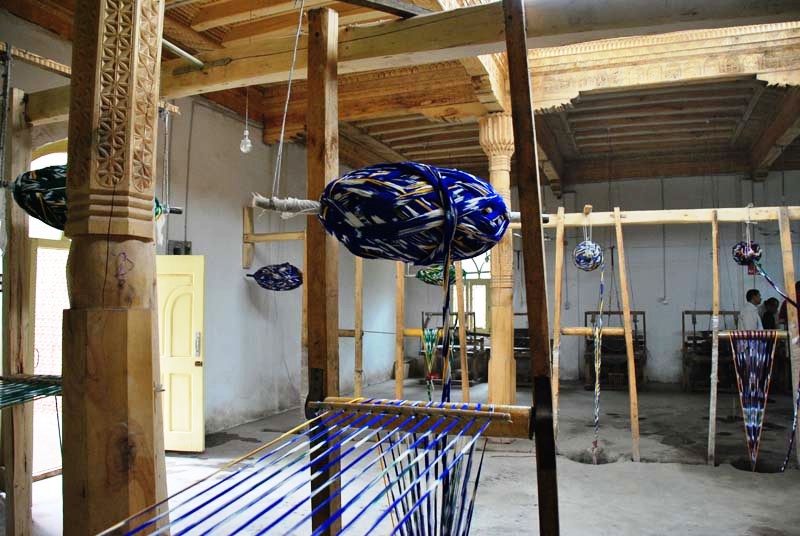
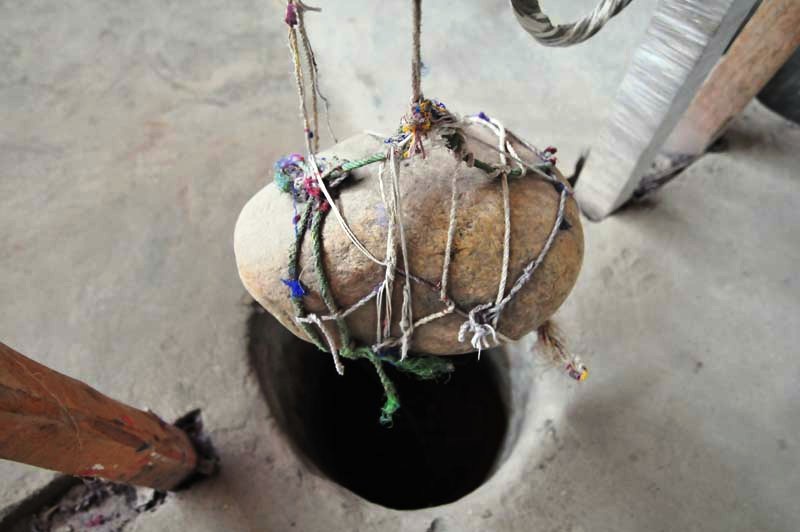
..... and seven: weave it. Sounds pretty easy. Beside the pattern we haven't seen any Hotan specific production process.
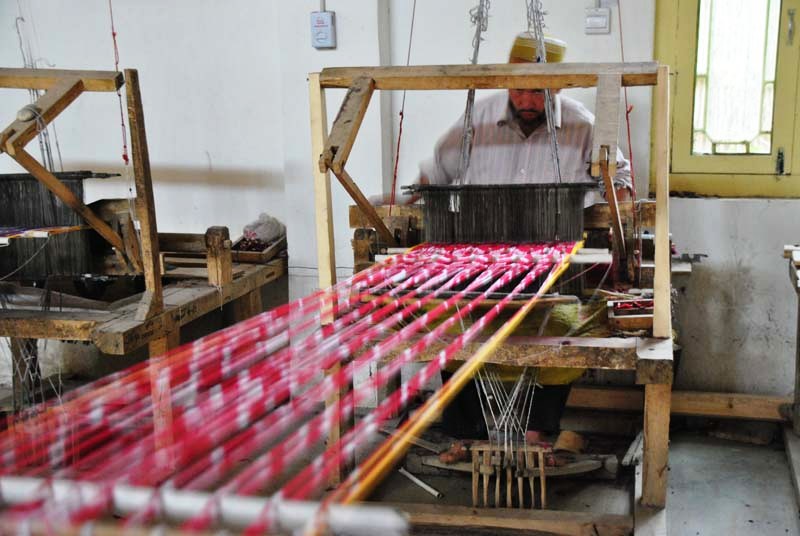
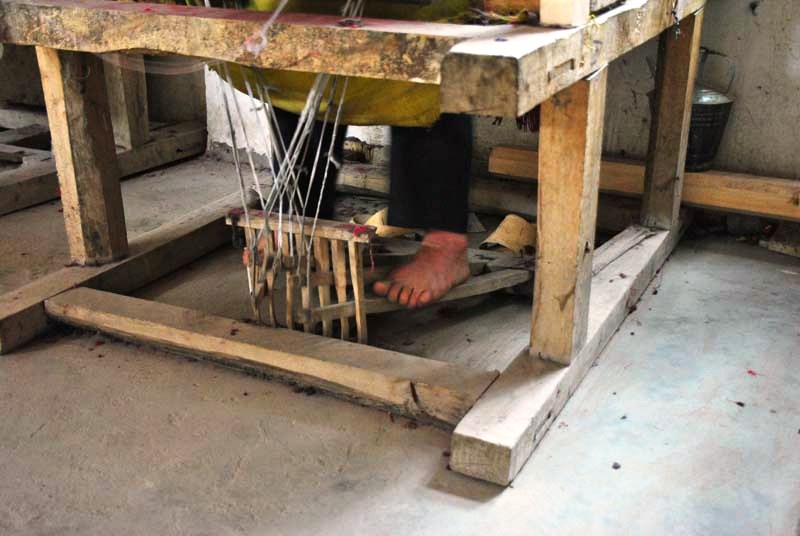
Uuups, not to forget: eight: selling. And also here the modern marketing about natural, bio, oekological and so on came to Hotan.....
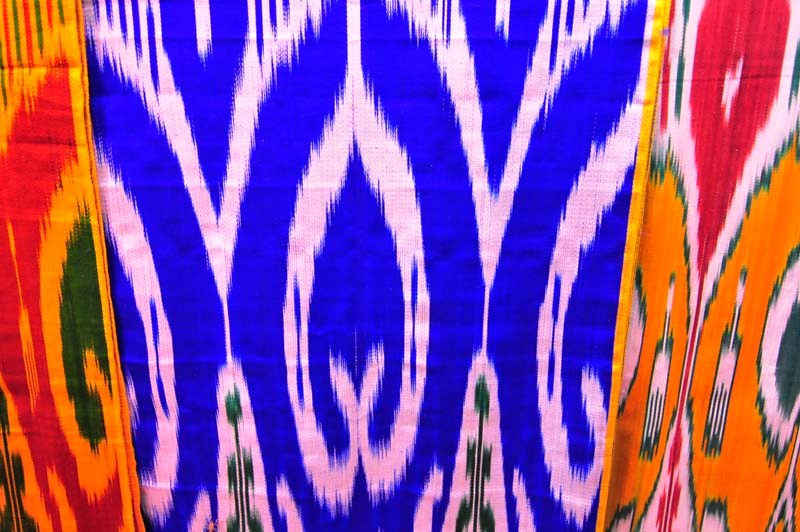
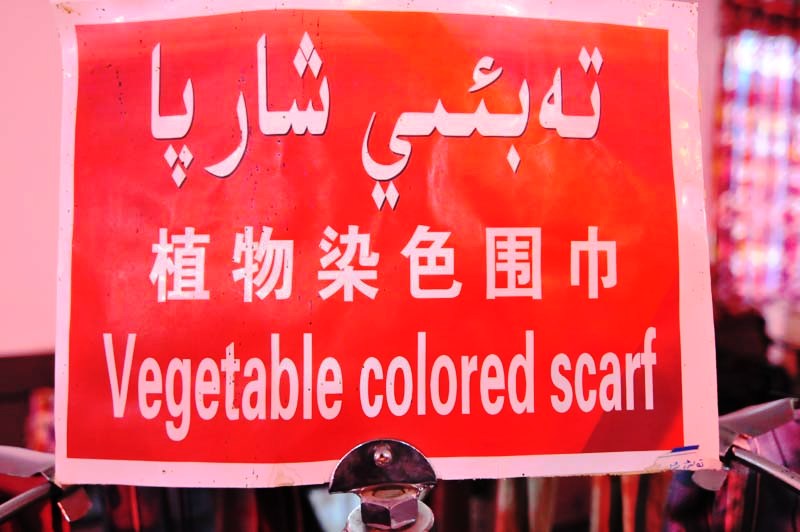
The rain flooded parts of the river bank which caused people to start searching. Searching for river jade. The lucky one who finds one of these stones is a made man - or women.
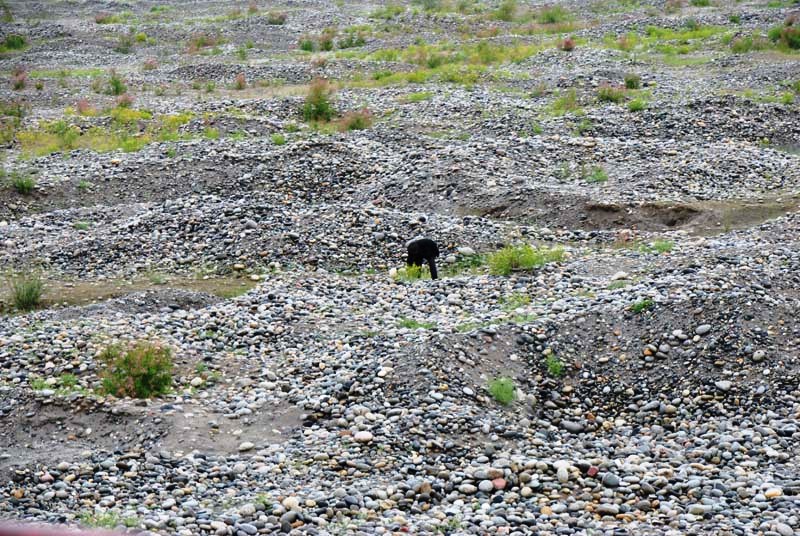
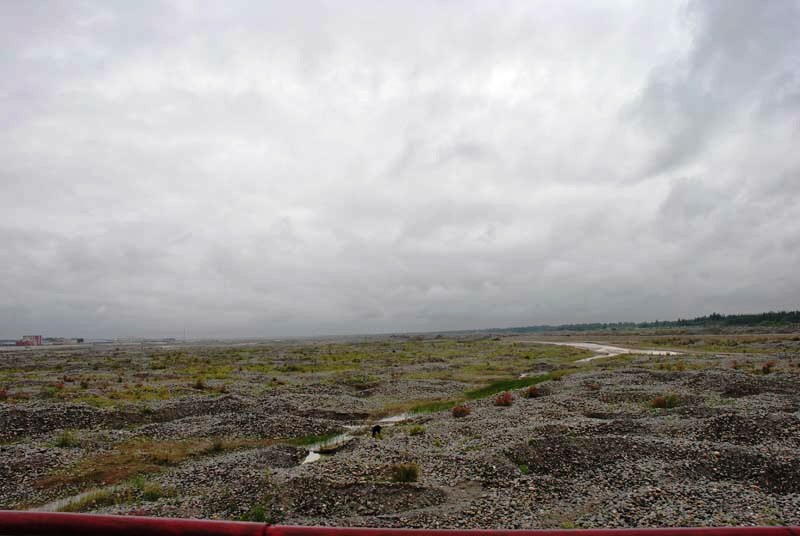
Silk & Jade done. What's next. Silk paper. This very old handcraft is nearly disappeared. Silk paper is not made out of silk. It's made out of the bark of the mulberry tree. As the mulberry tree is the main course for the silk bead, that paper is named silk paper.
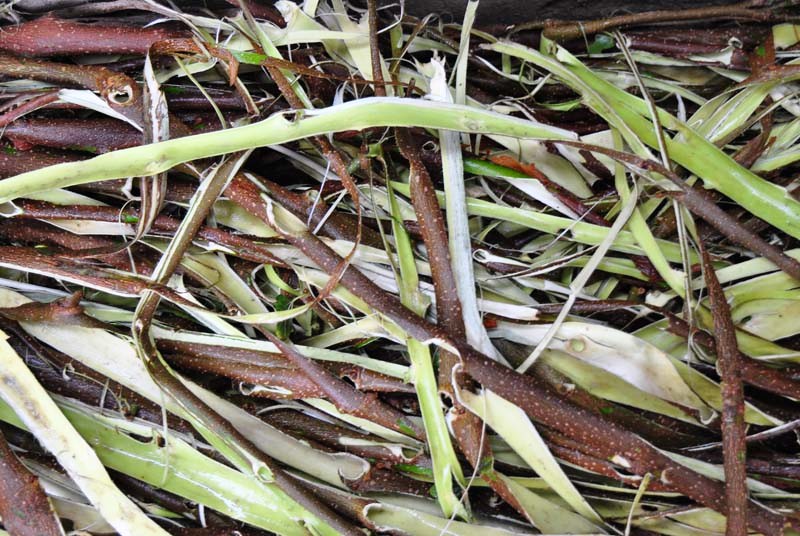
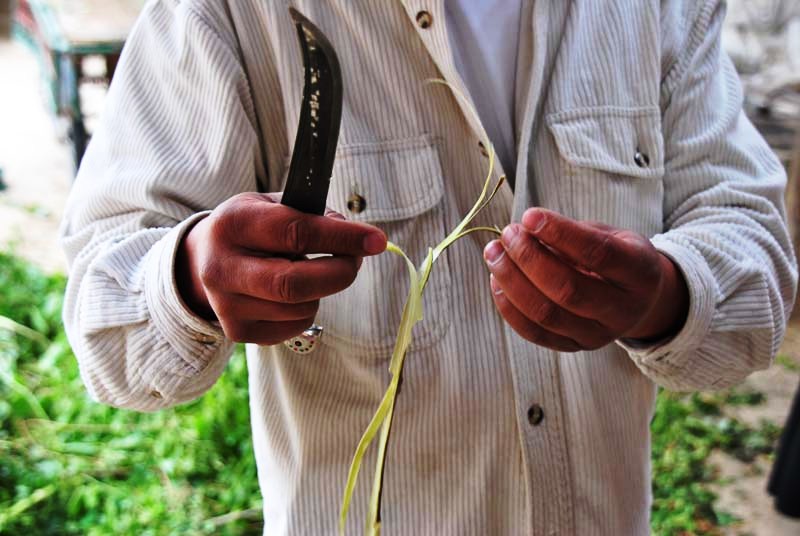
The bark is put in a hole together with water and some not defined other stuff. There it stays until it's rotten - and again it would be nice to give a smell sample, it's just unbelievable stinky. This rotten paper mass is ladled to a netting wire frame, stirred up with a manual blunger and then put aside for drying. Done.
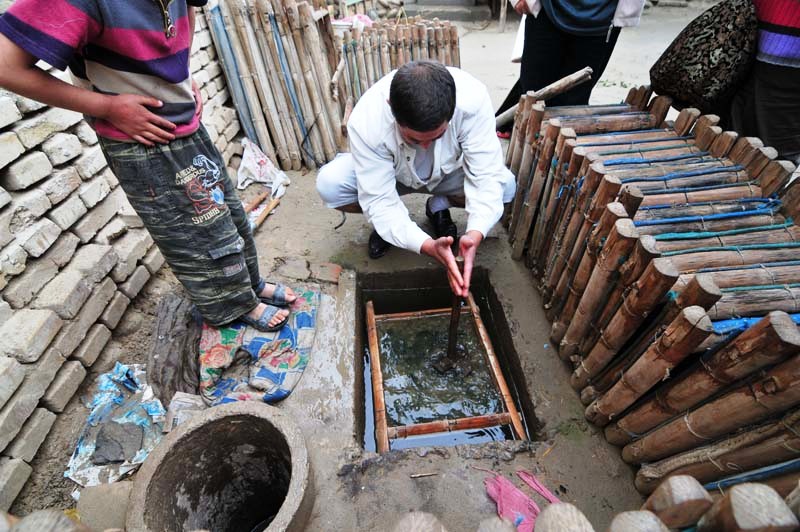
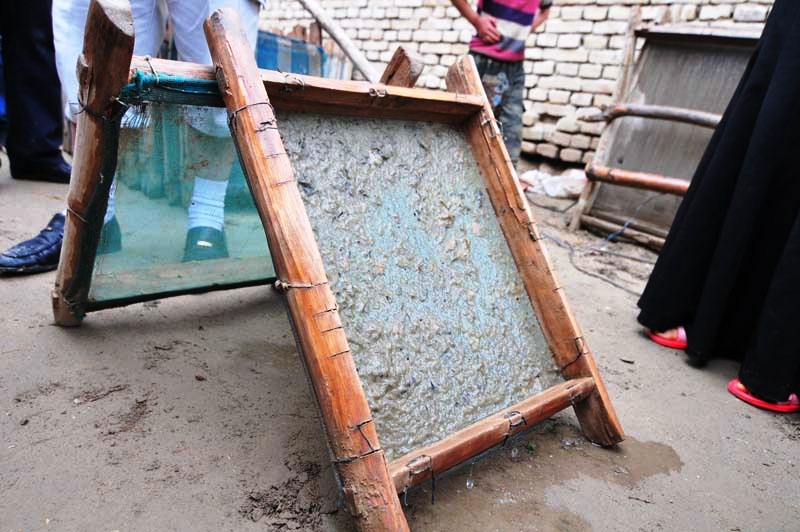
Beginning of the 90s Mr Tschudin from Switzerland (Stephan was wondering if he's not any more into grinding machines ;-) has been visiting in Hotan and was so fascinated that he wrote a book about the "Last Silk Maker of the Taklamakan". This book we we're allowed to gaze at after they found out that we're a kind of swiss people ;-)
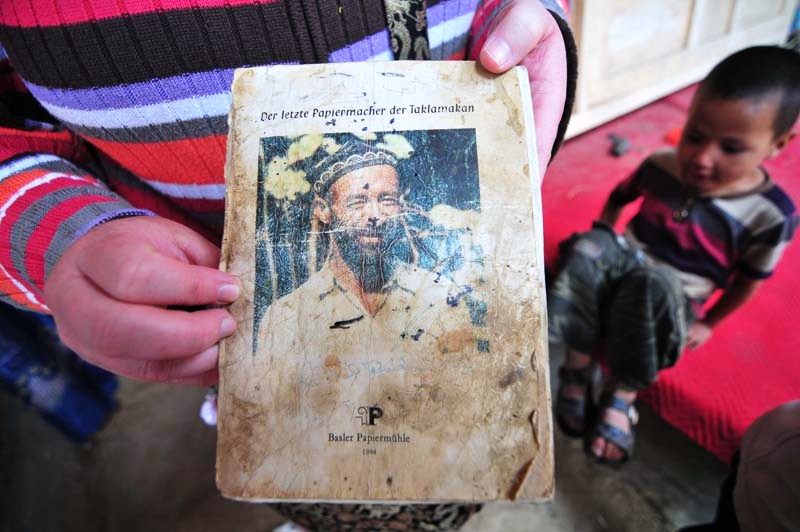
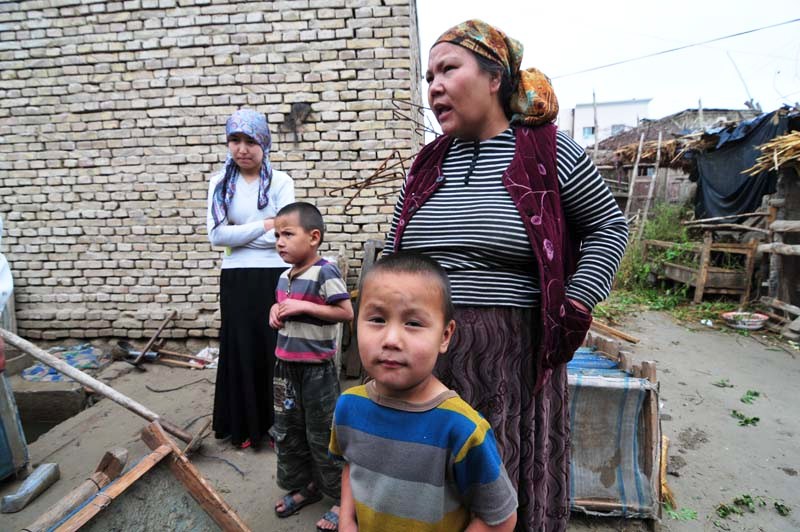
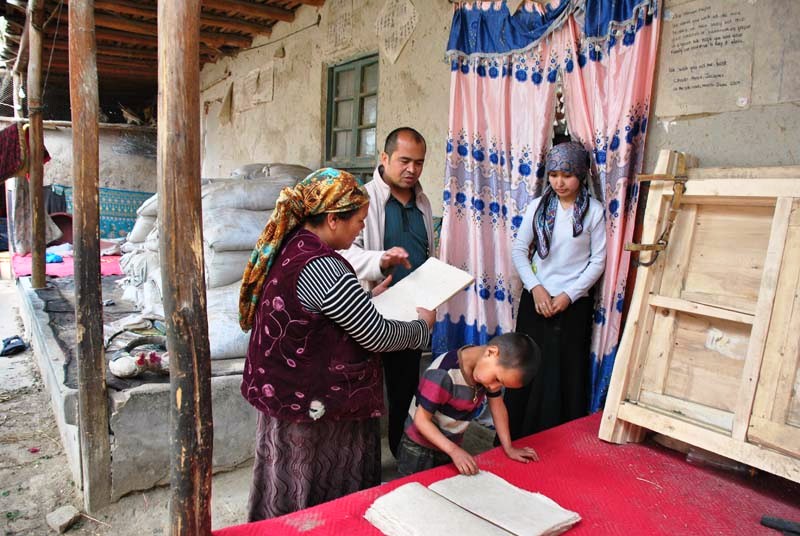
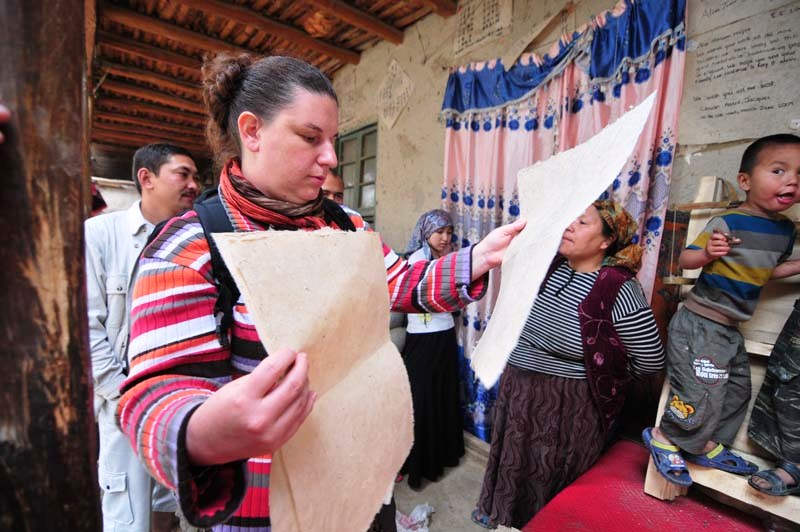
Some family pictures, some small talk, taking a closer look, who left his email address at the wall and off we went to have lunch.
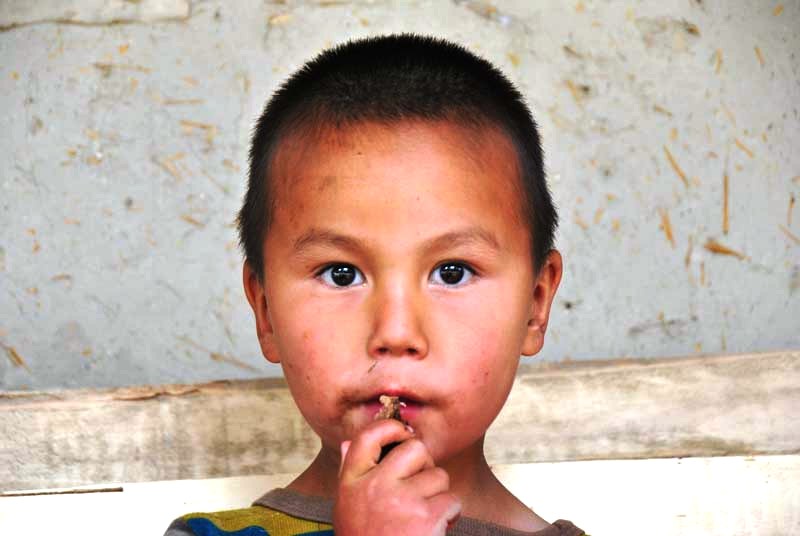
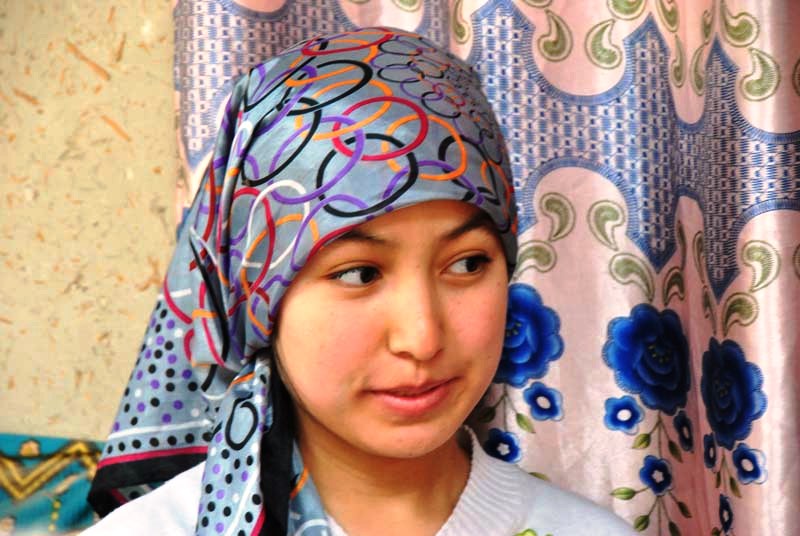
Next stop after a delicious lamb lunch was the wood turner. Or shall we have a walk through the rainy Hotan. Hmmm, wood turner sounds nice.
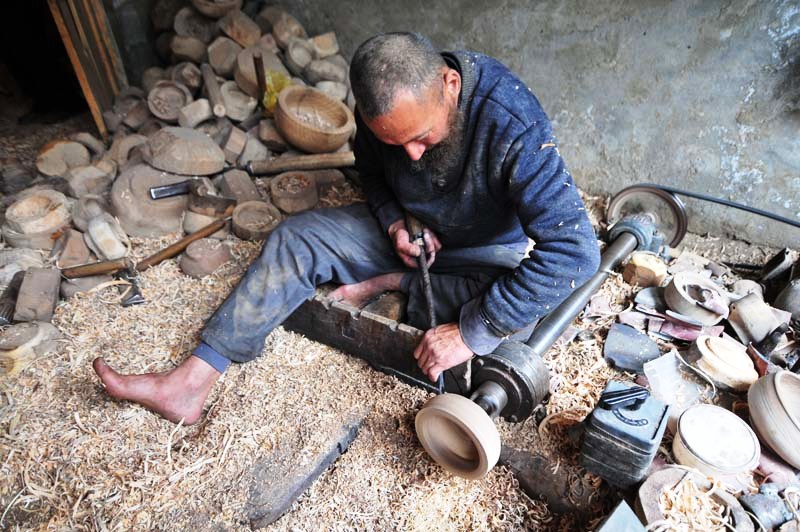
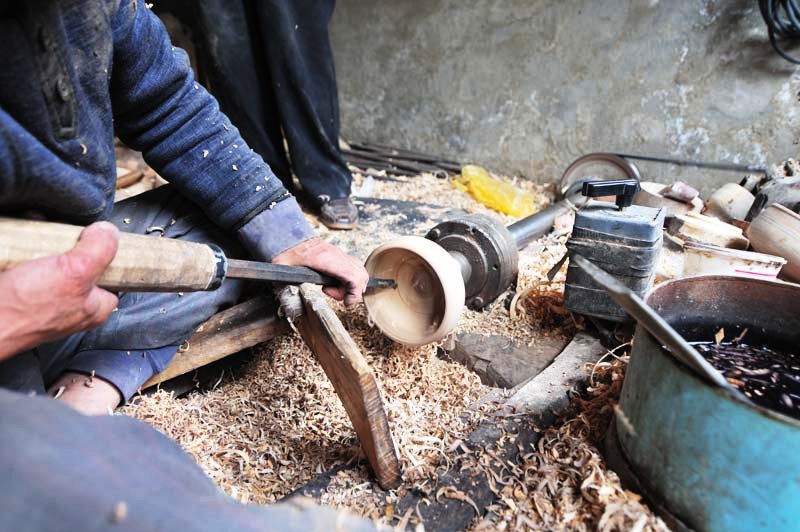
After our arrival it took around 2 minutes to have the whole neighborhood in the small turner place. Usually the tourists are watching the locals, here it was vice versa.
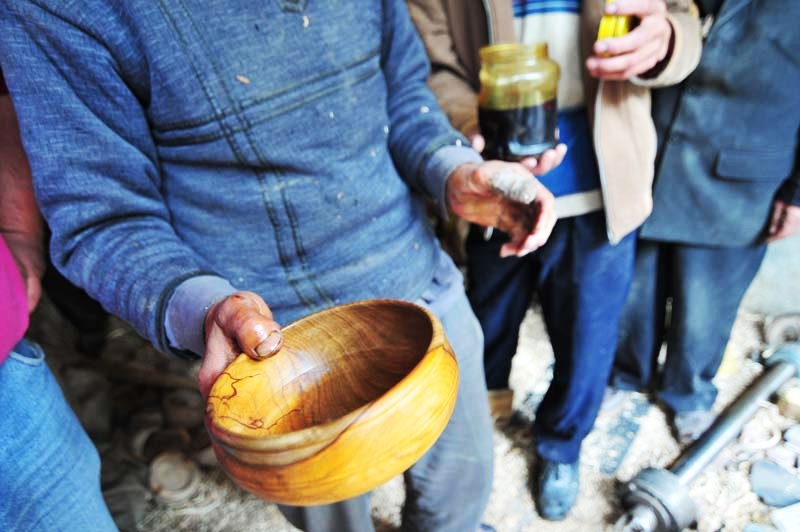
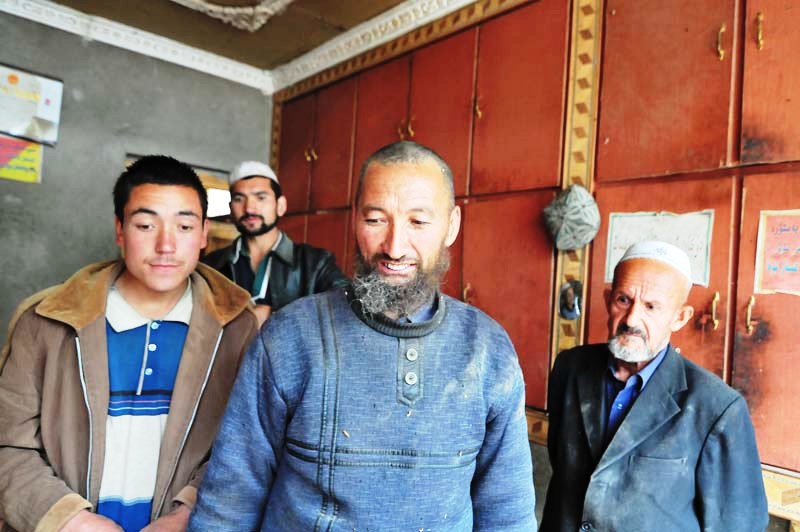
In the backyard we were allowed to take a look at the big machines and the wood storage. We bought some walnut bowls and got some wooden spoons for free, even if the amount was unbelievable small.
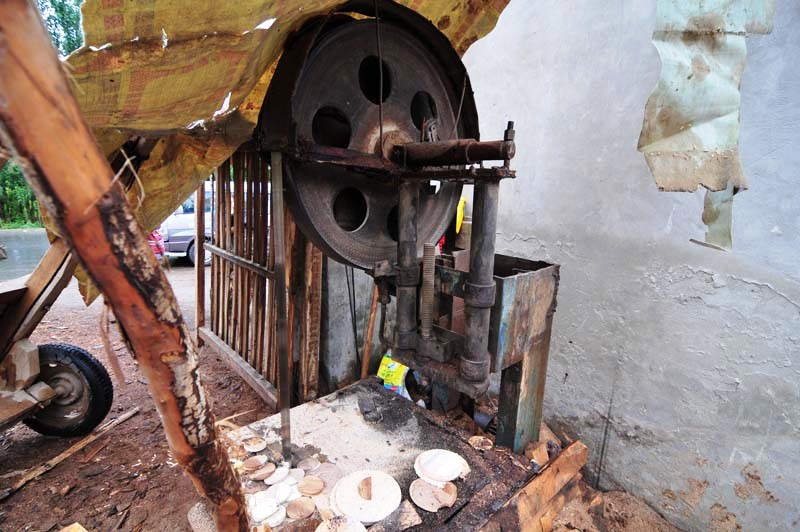
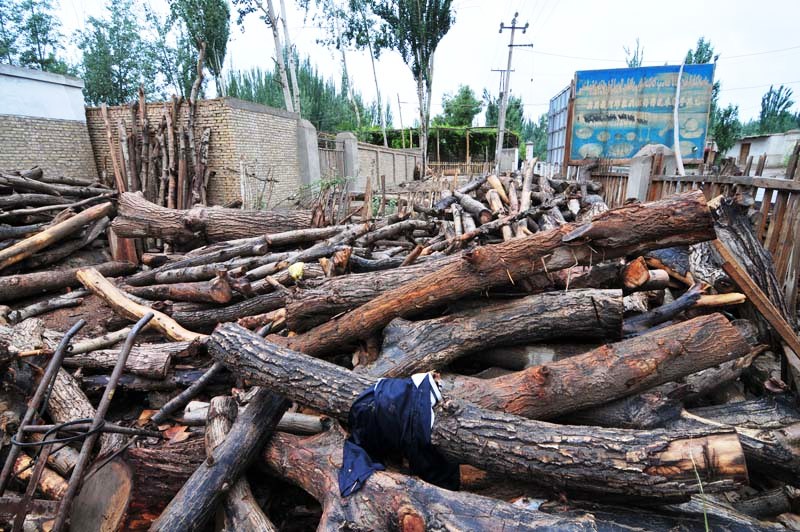
Right in time we transferred to the airport. The Hotan airport is similar to the airport in Oulu, Finland. No buses, one terminal, three gates and four flights a day. Two flights per day are departing to Ürümqi, two flights are arriving from Ürümqi. Very easy to handle. But why are there three gates.....
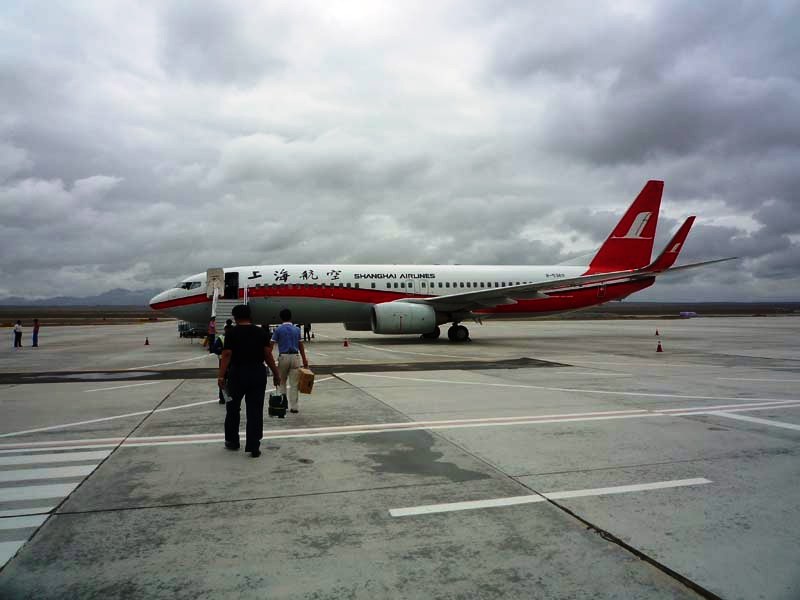
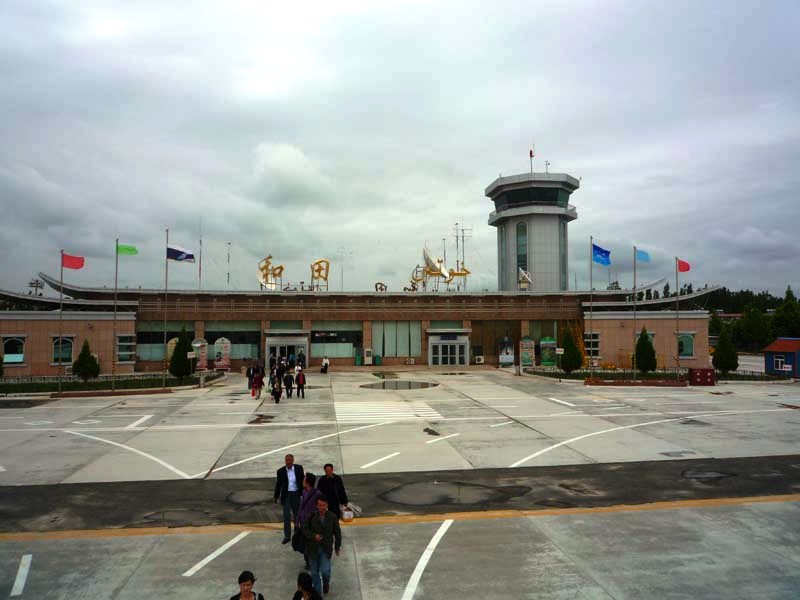
The clouds broke of just before we landed in Ürümqi and gave us a nice look to the bizarre landscape around Ürümqi. Green in the middle of the desert.
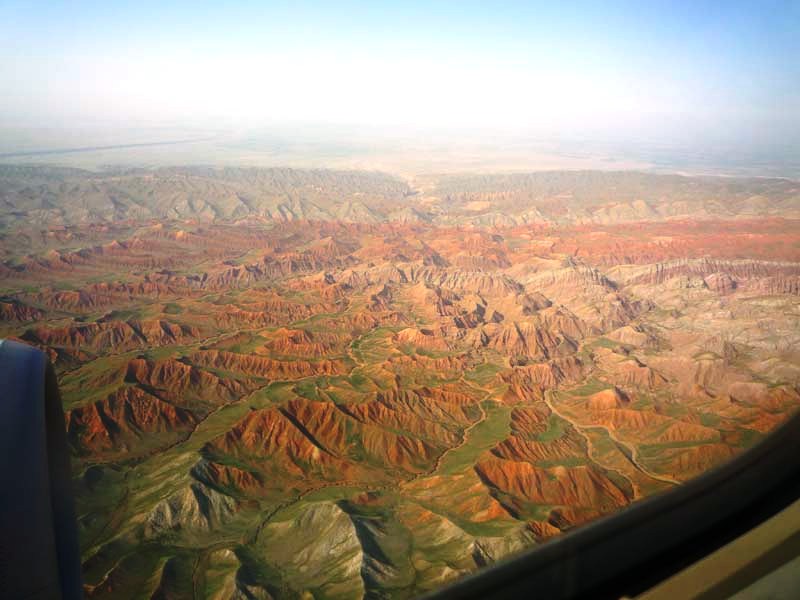
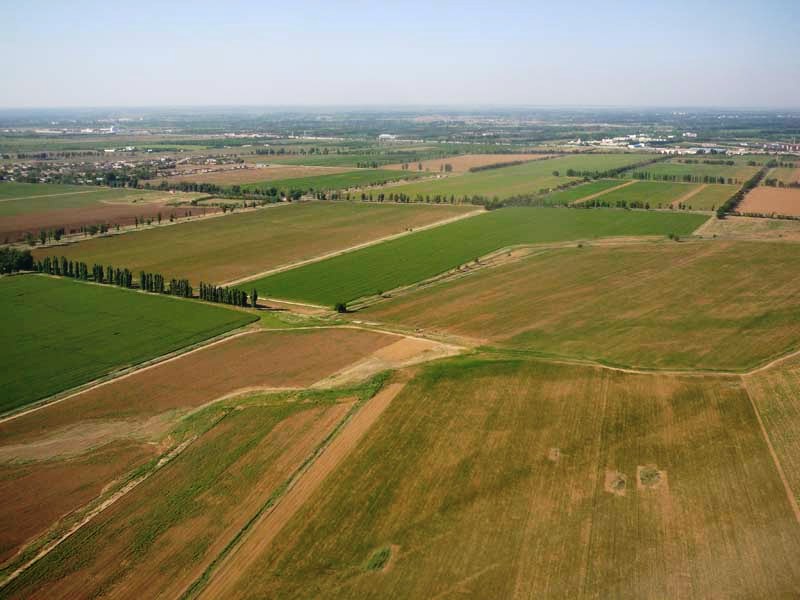
Our new guide and driver found us at the airport and we went directly for dinner. Uygur food - for sure. Lamb, noodles, bread, yogurt. We really love the food here.
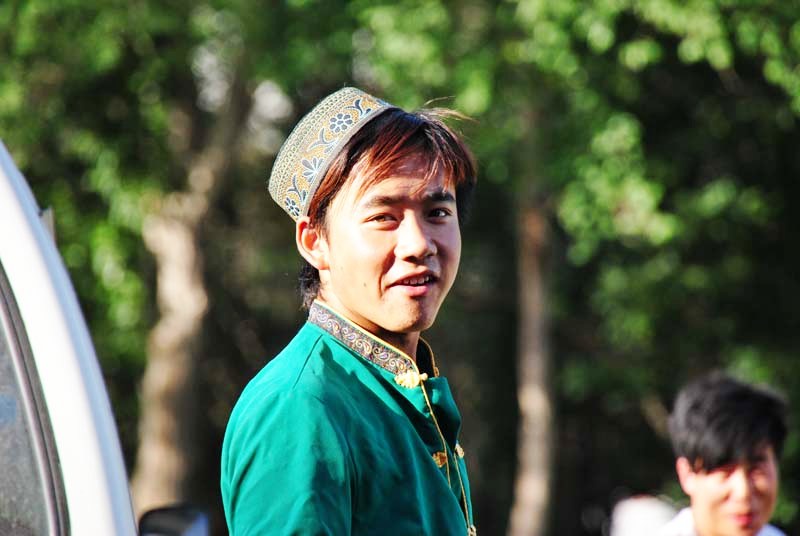
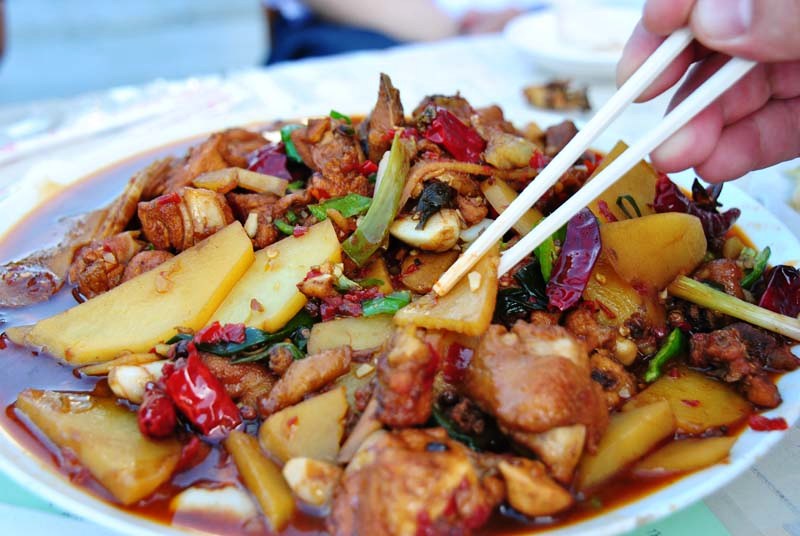
From the window in our hotel room we saw some kind of busy street with booths. A night market, cool, let's check it out.
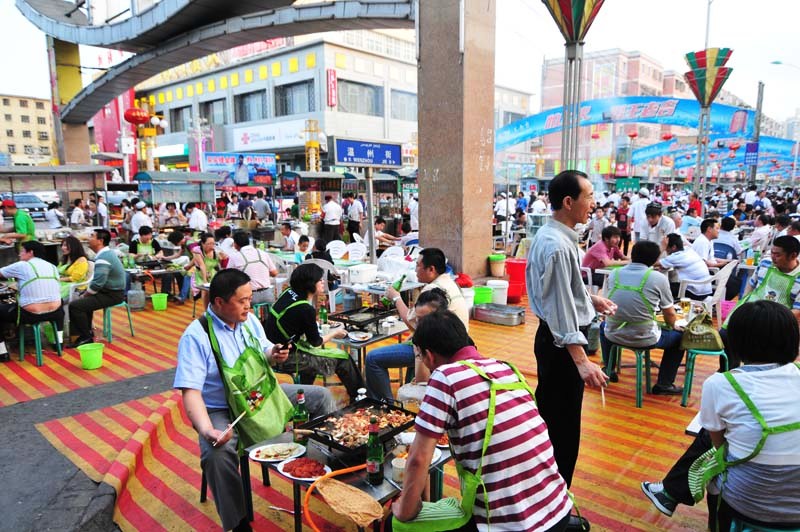
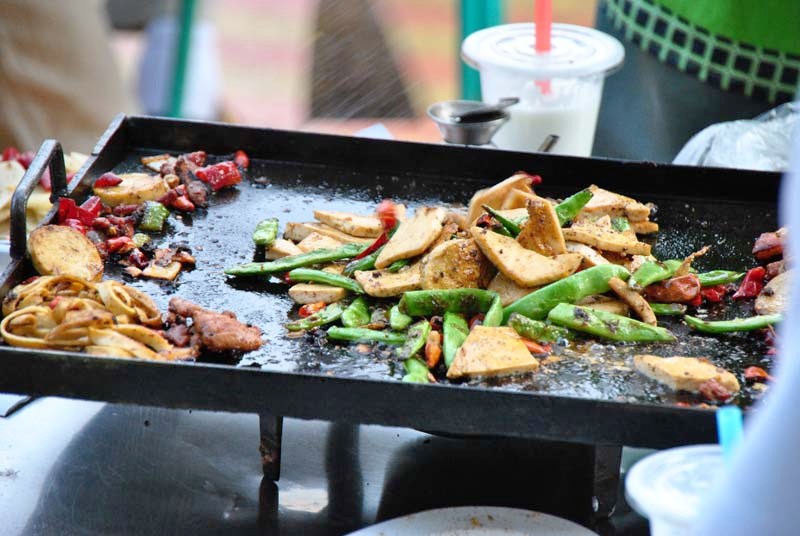
More than 95% of the inhabitants of Ürümqi are Han Chinese. The minorities are hard to be found. So the kitchen at the night market is mostly chinese, influenced by some uygurian spices.
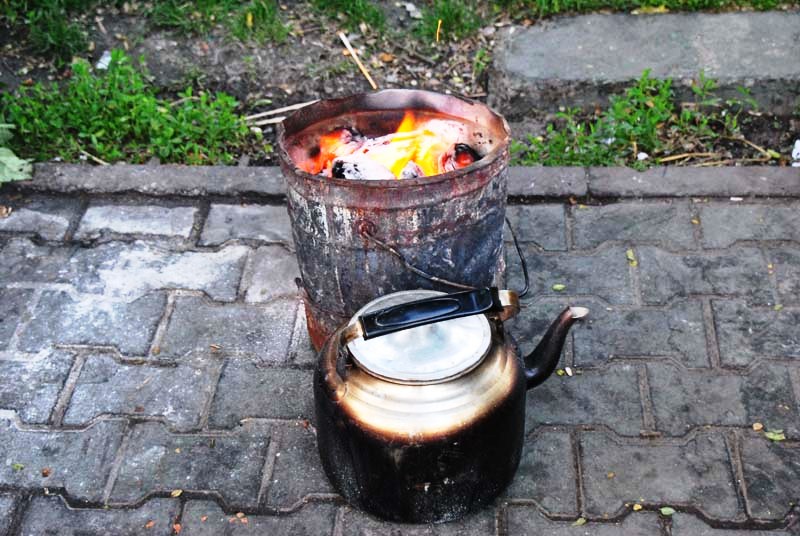
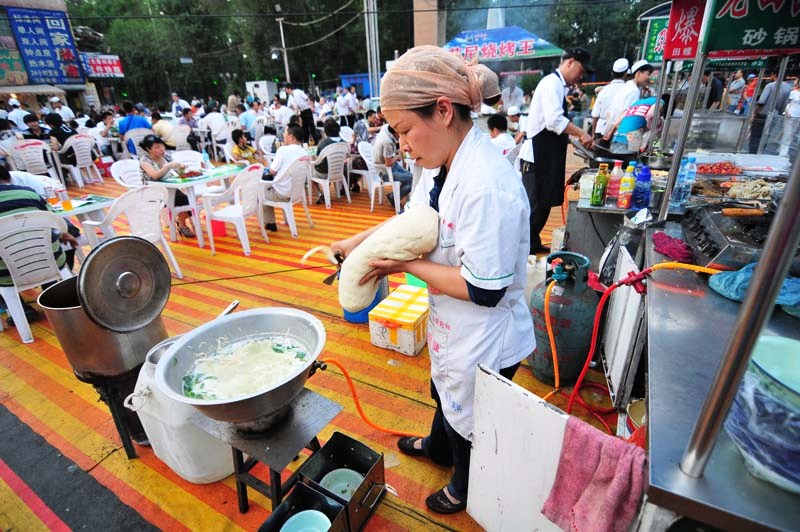
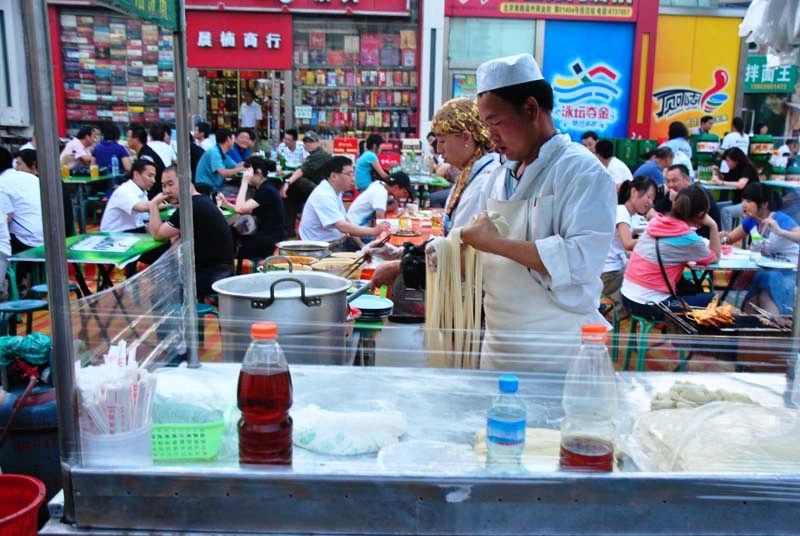
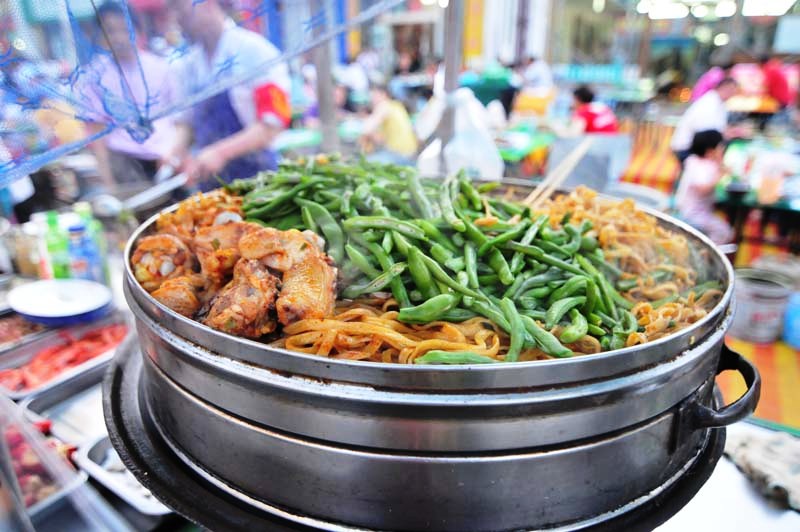
But not only food is sold on the market, also clothes, folding spades, Obama socks and Spongebob Shirts. Obama by the way is very popular here in China. Let's see how long this will last....

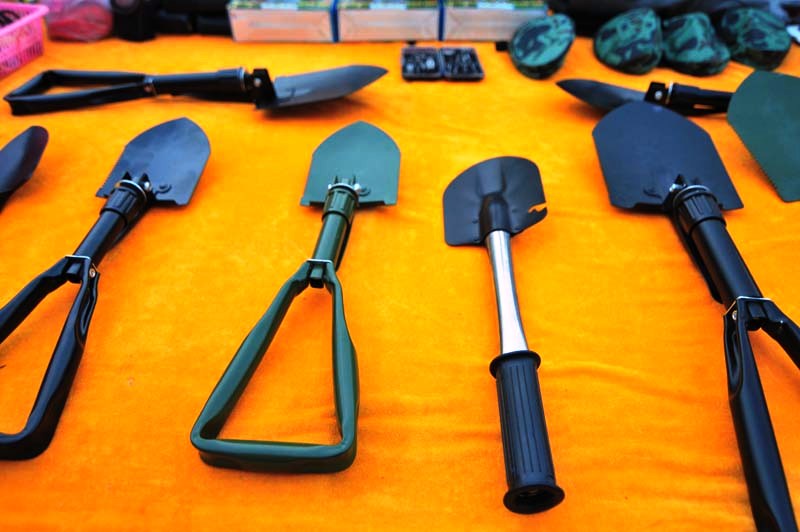
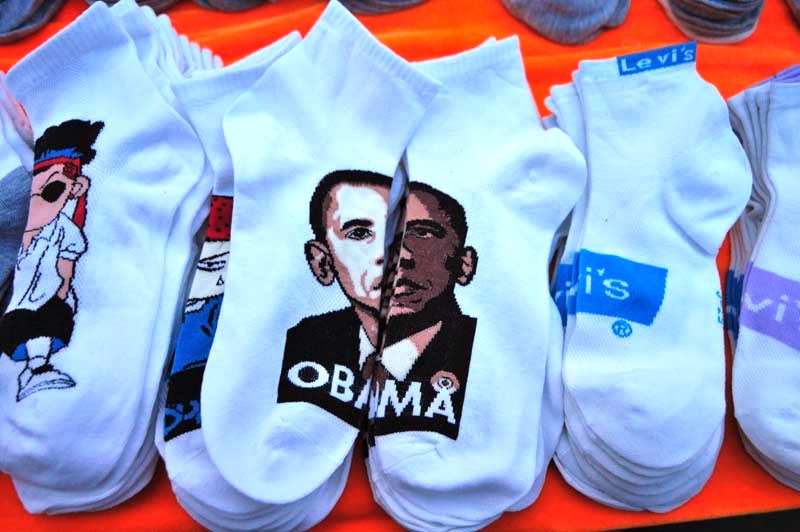
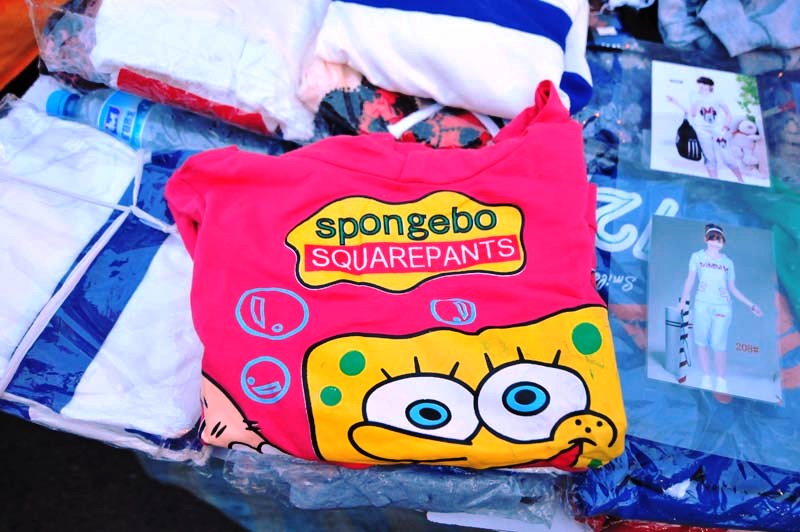
Tomorrow we drive to Turpan in the real desert, maybe without rain but this is a completely different story........
Silk...
....prepared for the loom......
